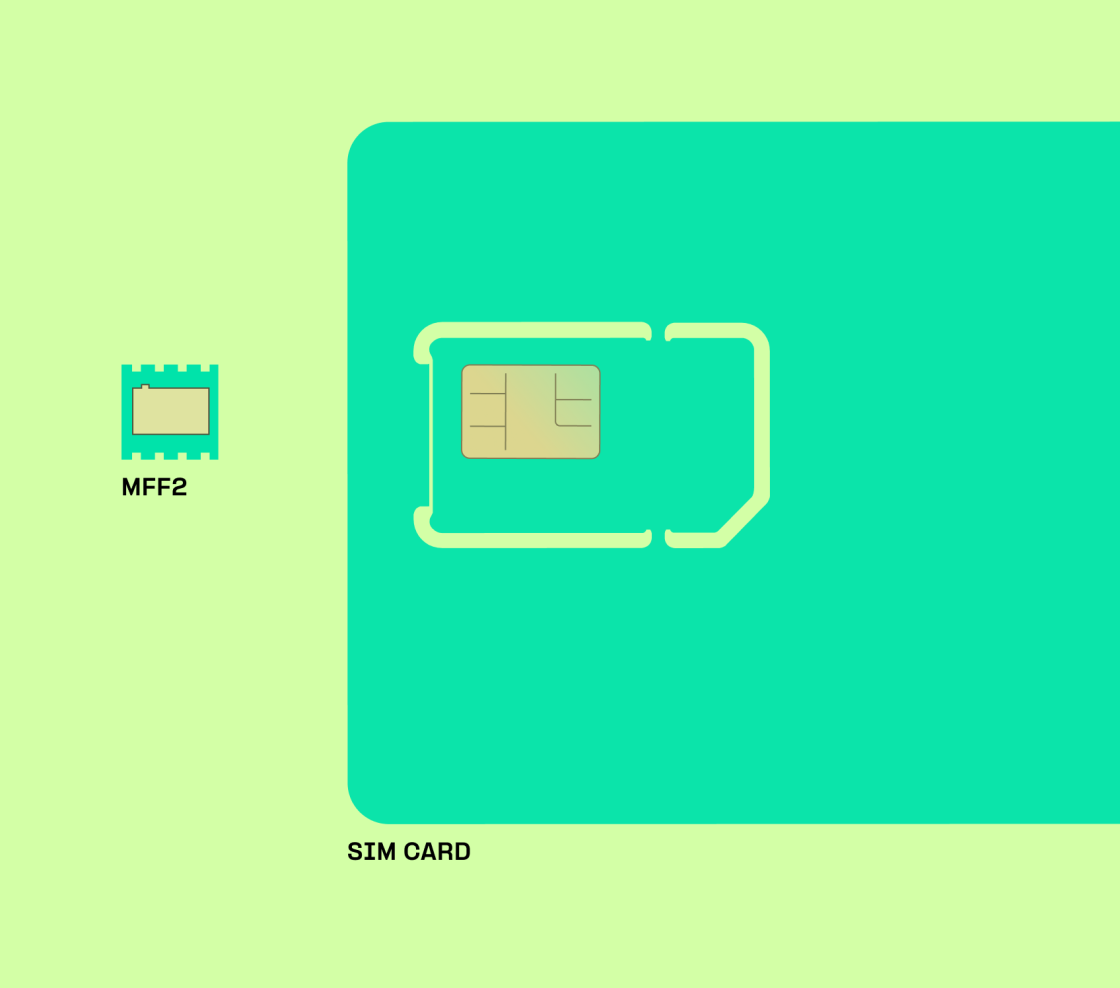4g Iot Sim Card IoT SIM cards
4g Iot Sim Card IoT SIM cards
Blog Article
Iot Sim Card North America Marketplace
The panorama of manufacturing is evolving quickly, pushed primarily by technological developments. Among these advancements, IoT connectivity options for manufacturing automation stand out as pivotal parts reshaping how industries operate. The Internet of Things (IoT) integrates digital and physical worlds, making a network of interconnected units that talk seamlessly. This interconnectedness permits manufacturers to optimize their processes and enhance productiveness.
Real-time data is a cornerstone of recent manufacturing. Through IoT connectivity options, machines and sensors generate data that present insights into production processes. This quick access to data empowers producers to make informed decisions quickly. For instance, if a machine is underperforming, operators can identify the problem and implement corrective actions directly, ultimately minimizing downtime and enhancing throughput.
Predictive maintenance is one other important advantage of IoT connectivity solutions. By constantly monitoring tools performance through quite a few sensors, manufacturers can anticipate failures before they happen. This proactive method drastically reduces maintenance prices and improves the lifecycle of equipment. Instead of adhering to a reactive maintenance technique, organizations can optimize their maintenance schedules based mostly on actual machine circumstances.
Iot Board With Sim Card IoT SIM Cards Explained Understanding Differences
IoT technology additionally facilitates higher supply chain management. With the mixing of sensors throughout the supply chain, manufacturers acquire enhanced visibility into stock levels and material flows. This improved visibility permits companies to optimize stock administration, guaranteeing that they have the necessary materials on hand with out overstocking. Such effectivity interprets to lowered prices and improved service levels, which are essential for sustaining a aggressive edge.
Automation and robotics are more and more reliant on IoT connectivity solutions. Smart factories combine automated techniques powered by IoT to streamline manufacturing processes. Robotics geared up with IoT capabilities can talk with one another and modify their actions based on real-time data from the environment. This level of synchronization allows the implementation of adaptive manufacturing techniques that respond to fluctuations in demand quickly and successfully. Hologram Global Iot Sim Card.
Nb-Iot Sim Card SIM cards stopped working IoT Modules
Implementing IoT connectivity solutions requires a solid network infrastructure. Manufacturers must spend cash on reliable and safe communication networks able to handling the immense knowledge generated by interconnected units. 5G expertise is emerging as an important enabler of IoT connectivity in manufacturing. Its speedy pace and low latency help the real-time functions that are essential for data-driven decision-making.
Data analytics plays a vital position in harnessing the full potential of IoT connectivity solutions. With a wealth of information generated from connected devices, manufacturers must employ advanced analytics instruments to extract actionable insights. Machine learning algorithms can establish patterns and anomalies in data that may not be obvious to human analysts. This data-driven approach enhances operational effectivity by driving continuous improvement across manufacturing processes.
Cybersecurity is an important consideration as manufacturers combine IoT options into their operations. The connectivity that IoT brings increases the surface area for potential cyberattacks. Implementing strong security measures to safeguard crucial manufacturing techniques is paramount. This includes ensuring that every one gadgets are safe, data is encrypted, and steady Resources monitoring for threats is in place.
Worker security is significantly improved via IoT connectivity solutions. Wearable gadgets geared up with sensors can monitor the health and safety of staff in actual time. These smart wearables can alert personnel to hazardous situations, guaranteeing timely intervention. Such measures not only defend workers but additionally contribute to total productivity by minimizing the chance of accidents.
What Is An Iot Sim Card SIM Card IoT Data Plan
The transition to smart manufacturing via IoT connectivity options also promotes sustainability. By optimizing processes, manufacturers can significantly scale back waste and energy consumption. IoT gadgets help track useful resource usage, enabling businesses to determine areas where effectivity can be enhanced. These environmentally friendly practices not solely benefit the planet however also can lead to cost savings over time.
The impact of IoT connectivity options on manufacturing extends beyond the operational realm. They allow enhanced customer engagement by permitting producers to ship personalized services. Through IoT-enabled gadgets, producers can collect data about customer preferences, leading to the creation of tailor-made choices that better meet market calls for. This stage of engagement fosters customer loyalty and strengthens brand reputation.
In conclusion, IoT connectivity options for manufacturing automation represent a transformative pressure within the trade. By offering real-time insights, predicting equipment failures, bettering supply chain management, and enhancing employee safety, these options redefine operational efficiency. As manufacturers continue to integrate IoT technologies, the benefits lengthen beyond conventional metrics of productiveness and cost. Embracing these innovations sets the groundwork for a more sustainable and responsive manufacturing environment that's geared up to meet the challenges of the longer term.
Does Nb-Iot Need A Sim Card Global IoT SIM Connected Devices

- Enhanced real-time monitoring through IoT sensors permits producers to trace equipment performance and operational efficiency.
- Predictive maintenance is facilitated by IoT connectivity, decreasing downtime and lengthening equipment lifespan via well timed interventions.
- Seamless integration of IoT devices throughout manufacturing strains enhances data collection, resulting in improved decision-making processes.
- Wireless technologies similar to LPWAN enable cost-effective communication over vast manufacturing facilities, minimizing installation complexity.
- Cloud-based IoT platforms present scalable options for data analytics and visualization, empowering manufacturers to establish developments and optimize workflows.
- Enhanced asset tracking using IoT gadgets ensures higher inventory management and decreased losses due to misplacement or theft.
- Industry-specific IoT protocols, like MQTT and CoAP, guarantee environment friendly and safe data transmission tailor-made to manufacturing wants.
- Advanced cybersecurity measures are essential in IoT ecosystems to protect sensitive operational data from potential threats and breaches.
- Integration of IoT with machine learning algorithms permits for autonomous adjustments and improvements in manufacturing processes based mostly on historical information.
- Collaboration with IoT resolution providers allows manufacturers to customise connectivity strategies iot sim copyright that handle their unique operational challenges.
What are IoT connectivity solutions for manufacturing automation?
IoT connectivity solutions allow seamless communication between machines, sensors, and gadgets within a manufacturing environment, facilitating knowledge exchange, monitoring, and control to enhance operational effectivity and decision-making.
How do IoT connectivity solutions improve manufacturing processes?
These options streamline workflows, reduce downtime, and optimize asset utilization by offering real-time knowledge insights, enabling predictive maintenance, and enhancing supply chain visibility.
Iot Sim Card South Africa IoT SIM network-independent IoT SIM
What kinds of IoT connectivity technologies are commonly utilized in manufacturing?

Common technologies embrace Wi-Fi, Zigbee, LoRaWAN, cellular (4G/5G), and Bluetooth. Each know-how presents distinctive advantages primarily based on vary, data switch velocity, and energy consumption suited to totally different manufacturing needs.
How secure are IoT connectivity options for manufacturing?
Robust safety measures, including encryption, gadget authentication, and network segmentation, are important to protect manufacturing environments from cyber threats, making certain data integrity and operational continuity.
Iot Sim Card IoT SIM vs Normal SIM
Can IoT connectivity solutions be built-in with present manufacturing systems?
Yes, many IoT options are designed for interoperability, allowing integration with legacy methods and equipment. This permits manufacturers to boost their capabilities without changing present infrastructure.
Iot Sim Card South Africa IoT SIMs Any Device Anywhere
What are the fee implications of implementing IoT connectivity solutions?
Initial setup prices might range, but long-term savings are often realized through elevated efficiency, lowered waste, and improved maintenance strategies (Iot Sim Card India). A detailed cost-benefit analysis might help determine the monetary impact.
How can I select the proper IoT connectivity solution for my manufacturing facility?

Evaluate components such as scalability, reliability, ease of integration, and particular use case requirements. Consulting with business consultants and conducting pilot projects might help in figuring out the best fit in your needs.
Sim Card Iot IoT Industrial Business SIM Cards
What are the challenges in adopting IoT connectivity options for manufacturing?
Challenges might embody cybersecurity concerns, interoperability points, and the necessity for employees training. Addressing these obstacles by way of strategic planning and stakeholder involvement can facilitate successful adoption.
How does knowledge collected via IoT connectivity affect decision-making in manufacturing?
Real-time knowledge analytics permits producers to make informed selections rapidly, optimizing operational processes, improving high quality management, and enabling proactive management of resources and potential issues - Iot Board With Sim Card.
Report this page